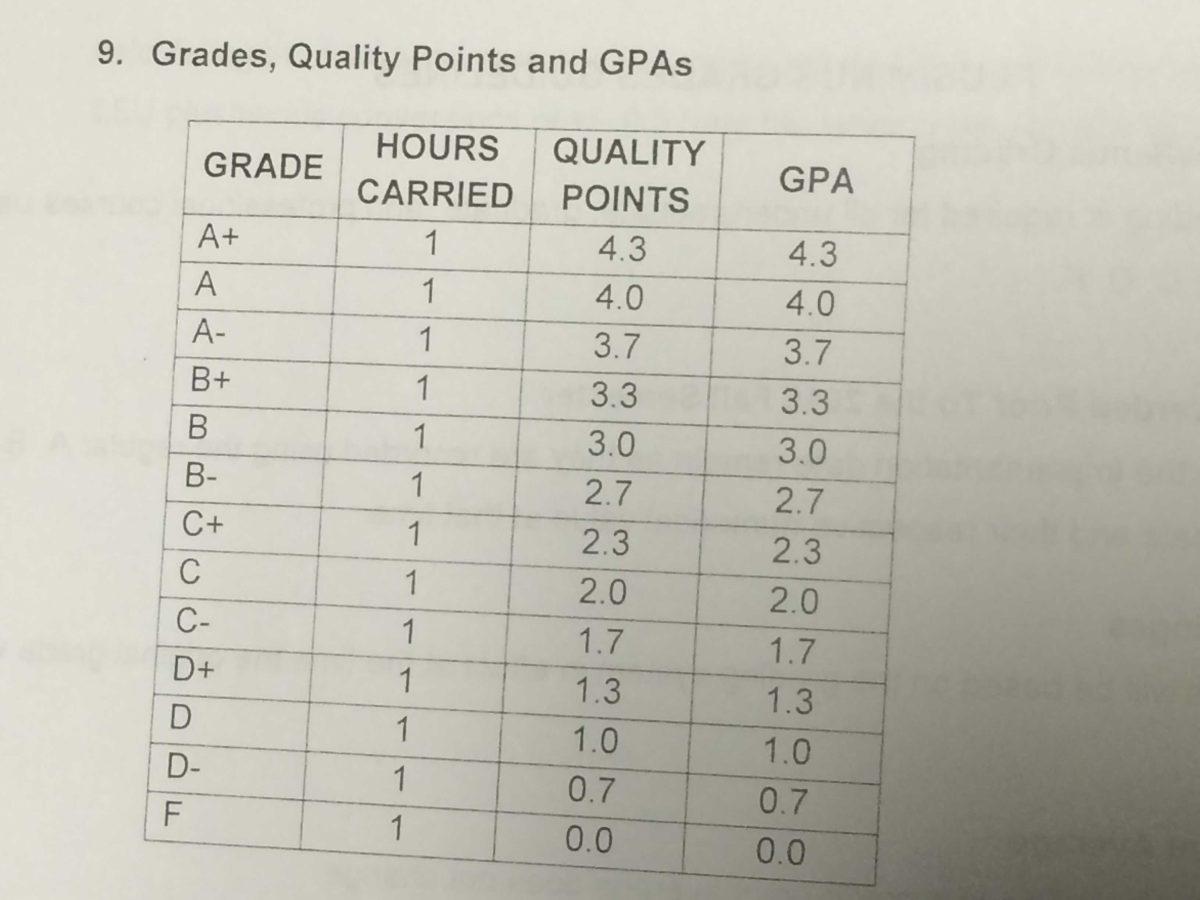The controversial plus/minus grading system at the University was implemented in fall 2015, and it still is not making a great impression on some students. Too many students are lazy, believing that C’s get degrees and living on the edge of the ten point scale. The plus/minus system is beneficial in that it makes the University more competitive and places more responsibility on students.
The policy was implemented so the University could be ranked higher when measured against other universities. Schools like New York University, Princeton University, and Tulane University all use plus/minus. Being the state’s flagship, the University has a name to uphold. The system measures a student’s performance more accurately. Students now have the opportunity to raise their GPA more dramatically, but they will have to put in more effort to do so.
The professor who proposed the plus/minus system in 2012, Don Chance, expressed that it will provide more flexibility with grading. He surveyed almost 80 schools of prestige in the U.S., and majority use plus/minus. Other SEC schools like Texas A&M University and the University of Arkansas still follow the traditional grading system. The University was trailing behind in this academic opportunity.
Professors are still able to decide what grading scale will be appropriate for their class. For example, a physics professor teaching a difficult course probably won’t make an A+ be a 97-100, but more like a 95-100. Our professors do not want us to fail or pass to easily, and they also do not want to lose their jobs either, so they are working with us.
All of us have pled for a grade, now it could be easier to ask to bring that D to a C-minus. Professors won’t feel as though they are handing us the grade, because they are able to elect how good of a letter grade we can receive.
Student Government’s new syllabus database will give students a chance to view how a professor distributes their grading scale before they schedule it. So for our students who are upset with plus/minus will have no reason for last minute sob stories to professors because they will already know what to expect.
The opposing view is that plus/minus is only helping underclassmen. Lower-level classes are easier to maintain and are not as high stakes. The system hurts upperclassmen who are struggling to get into professional schools and taking higher-level classes.
This may be true, but if a student didn’t do well in lower-level classes, now they have the chance to make up for it by working harder.
Those preaching that plus/minus is unfair are students who are content with earning the bare minimum and focused on calculating projected final grades. So now the overachievers who work for the 99 just for their own satisfaction are being rewarded for it.
We attend the flagship, and it is honestly a privilege. It’s time to repay the University for all it has done for us. This system has not been implemented to make us to be failures, but to make us the high achievers that we are expected to be. The days of mediocre grades are over, and it is up to us students to be a reflection that we aren’t just “good enough,” but that we are better than the rest.
Ari’yana Gibson is a 21-year-old English secondary education senior from Slidell, Louisiana. She can be reached at @gibstionary.
OPINION: Plus/minus system benefits students
May 9, 2016
Grading with a Plus…and a Minus?
More to Discover








